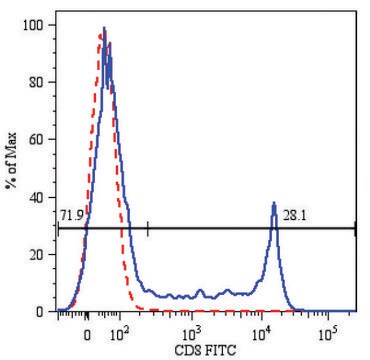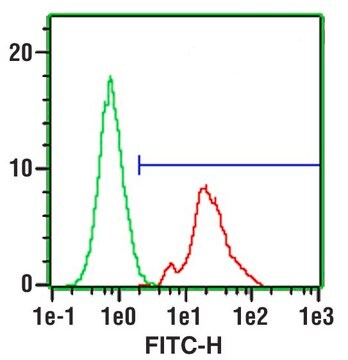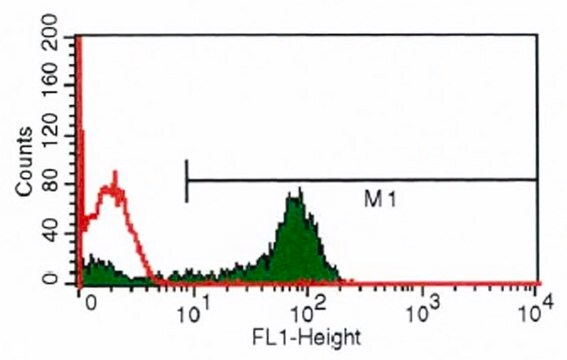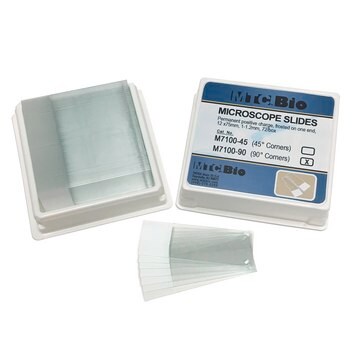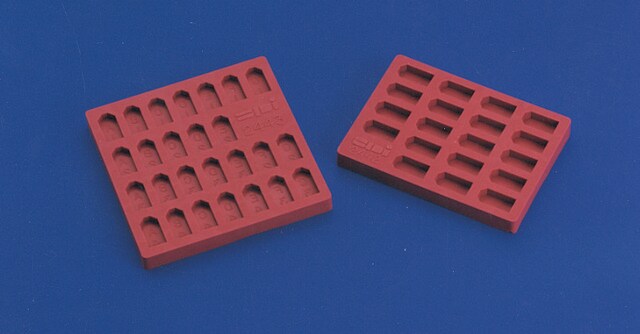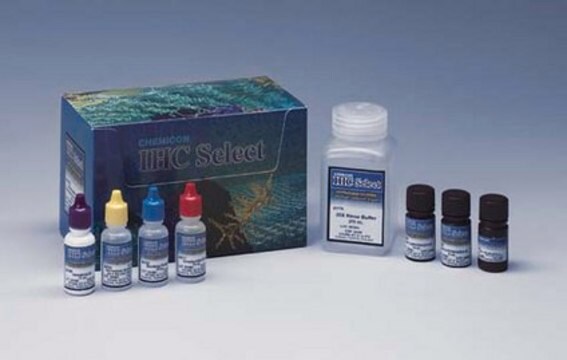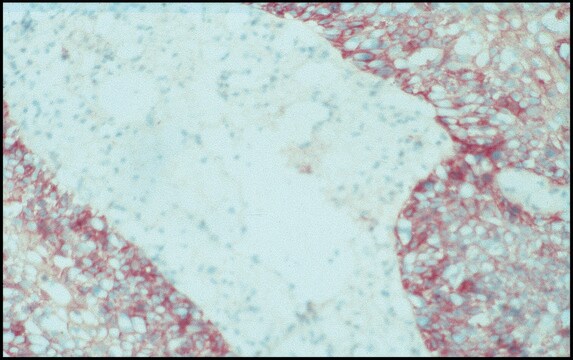F0772
Monoclonal Anti-CD8−FITC antibody produced in mouse
clone UCHT-4, purified immunoglobulin, buffered aqueous solution
Sinónimos:
Monoclonal Anti-CD8
About This Item
Productos recomendados
origen biológico
mouse
conjugado
FITC conjugate
forma del anticuerpo
purified immunoglobulin
tipo de anticuerpo
primary antibodies
clon
UCHT-4, monoclonal
Formulario
buffered aqueous solution
reactividad de especies
human
técnicas
flow cytometry: 10 μL using 1 × 106 cells
isotipo
IgG2a
Nº de acceso UniProt
Condiciones de envío
wet ice
temp. de almacenamiento
2-8°C
modificación del objetivo postraduccional
unmodified
¿Está buscando productos similares? Visita Guía de comparación de productos
Descripción general
Especificidad
3rd Workshop: code no. 567
Inmunógeno
Aplicación
- Immunofluorescent staining,
- Enumeration of total T cytotoxic/suppressor lymphocytes in bone marrow, blood and other body fluids,
- Identification and localization of T cytotoxic/ suppressor lymphocytes in lymphoid and other tissues,
- Analysis of cell mediated cytotoxicity,
- Studies of immunoregulation in health and disease,
- Investigation of NK cells, Complement mediated cytolysis of CD8 expressing cells
Acciones bioquímicas o fisiológicas
Descripción de destino
Forma física
Nota de preparación
Cláusula de descargo de responsabilidad
¿No encuentra el producto adecuado?
Pruebe nuestro Herramienta de selección de productos.
Código de clase de almacenamiento
10 - Combustible liquids
Clase de riesgo para el agua (WGK)
nwg
Punto de inflamabilidad (°F)
Not applicable
Punto de inflamabilidad (°C)
Not applicable
Elija entre una de las versiones más recientes:
¿Ya tiene este producto?
Encuentre la documentación para los productos que ha comprado recientemente en la Biblioteca de documentos.
Nuestro equipo de científicos tiene experiencia en todas las áreas de investigación: Ciencias de la vida, Ciencia de los materiales, Síntesis química, Cromatografía, Analítica y muchas otras.
Póngase en contacto con el Servicio técnico
